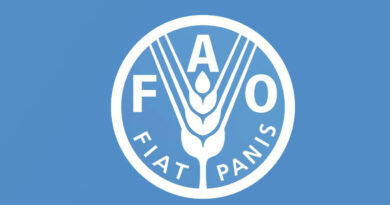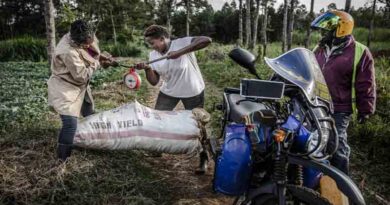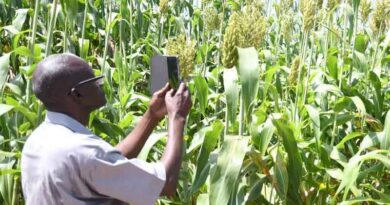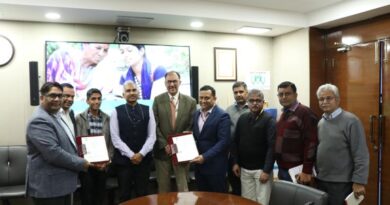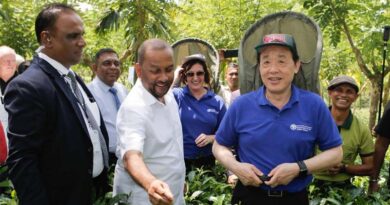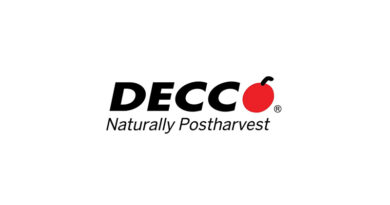Productive Alliances: Partnering for Greater Inclusiveness and Efficiency in Agricultural Systems
26 April 2024, Rome: One of the major development challenges in today’s rapidly expanding agricultural value chains is connecting small farmers to increasingly competitive markets. The format of Productive Alliances between small farmers, the public sector, and the private sector is a type of partnership that holds great promise in this regard.
This was the message that resonated from a workshop hosted this month by the Food and Agriculture Organization of the United Nations (FAO) that brought together experts, practitioners, and policymakers, serving as a platform for exchange and dialogue to discuss the enormous potential of Productive Alliances (PA) and what might be best practices.
Increasing evidence suggests that the PA approach can lead to increased productivity, market integration, sales, and smallholder farmer income. Building on success stories in Latin America, the Caribbean, and Africa, the intent is to be able, in the future, to replicate the model in other areas.
Linking smallholders to markets
“Productive alliances” describes a specific type of partnership between three key agents: small producers, buyers, and the public sector; at the core is a business plan that defines funds sourced from a public institution-and the needs of producers, proposing improvements that will enable them to improve production capacity and skills. The implementation of such a business plan is typically supported by three main inputs and/or activities directed at producers’ needs, namely, production investment, technical assistance, and business development. These key inputs are financed through public grants provided by the project.
The goal is to establish direct business relationships between large companies and small farmers, strengthening the capacity of the latter to be permanent suppliers to buying companies, and thus facilitate their access to markets and improve their competitiveness.
The case of Benin and its potential for replication
The workshop, which featured FAO, International Fund for Agricultural Development (IFAD), United Nations Industrial Development Organization (UNIDO) and World Bank experts, focused on PA projects in Africa. High-level institutional representatives and experts from Benin took part in the technical sessions, sharing their country’s successful experience and what may be best practices that can be exported as a model to other regions.
In 2019, the Government of Benin invested $100 million to strengthen links between producers, buyers, and the public sector within agribusiness value chains. The Government of Benin launched the Projet d’appui au développement agricole et à l’accès au marché (PADAAM). The PADAAM project supports the development of productive alliances along staple food value chains (rice, maize, cassava) to improve the performance and inclusiveness of the agribusiness system. Since the project began, FAO has helped with technical and IT advice, capacity building, and funding.
The program mostly targets women and young people, aged 15-35, who make up 40 percent and 30 percent of the beneficiaries. After four years of implementation, Benin has gained important experience in developing PAs with significant spillovers in different parts of the agribusiness system.
Latin America and the Caribbean have also witnessed the transformative power of productive alliances in catalyzing agricultural growth and the empowerment of rural communities. The coffee sector is a prime example of a productive alliances approach to women’s inclusion in Colombia, where the women’s association Mujeres Productoras Agropecuarias del Departamento del Cauca (AMACA) began in 2008, in El Tambo-an area affected by violence-to forge strategic partnerships with small farmers, cooperatives, exporters, and government agencies to improve production systems. Through such partnerships, AMACA has provided technical assistance, access to credit, and marketing support, enabling women farmers to increase productivity, improve product quality, and access global markets.
A pledge for the future of agrifood systems
“In the context of agriculture and broader economic reforms that several governments in Africa are undertaking, the sharing of experiences and identification of best practices on Productive Alliances would go a long way to facilitate transformation towards more sustainable agrifood systems at different levels”, said Divine Nganje Njie, Deputy Director of the Food Systems Division of FAO, in his intervention.
The evidence from the workshop indicates that PAs have the potential to drive transformative and systemic change. The workshop examined PAs’ approaches, highlighting pitfalls and perspectives, sharing experiences among African countries with the goal of improving the approach from a systems perspective and finding ways to export it to other regions. The case of Benin represents a beacon of hope toward transformative change in the agricultural landscape in Africa and other regions.
(For Latest Agriculture News & Updates, follow Krishak Jagat on Google News)


